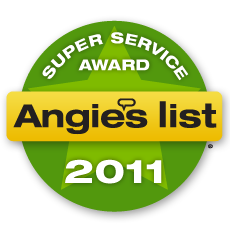
 Subscribe
Subscribe
blog categories
about (1)
privacy (1)
tos (1)
history (1)
Save Now (2)
blog (7)
parts (1)
service_text (1)
why (1)
pricing_policy (1)
testimonials (1)
main (1)
Category: blog

Over time, your bath towels will build up detergent and fabric softener residue. This not only attracts SMELLY mildew, it can essentially “waterproof” your towels. If water can’t get into the fabric to clean it, the towel won’t BE or SMELL clean.



Tips for KEEPING your towels CLEAN and FRESH-SMELLING:
- Be sure to check that your towels are 100 percent dry before putting them away. Even a small amount of moisture can make towels smell sour.
- Mold and mildew love it when towels are left in a puddle on the floor. They should be hung up to air-dry after each use. Bathmats, too, should be hung to dry.
- Make sure you’re not using TOO MUCH DETERGENT. Too much detergent leaves a residue, especially with high efficency washers that use less water.
- Don’t use commercial fabric softener on towels; it coats towels with a thin layer of chemicals which makes them less absorbent. White vinegar is a GREAT natural fabric softener. It prevents further build-up, eliminates static, and makes towels softer.
- Make sure towels are drying quickly enough after using them. Hang them on towel bars or spread across two hooks until they’re completely dry.
Laundry Pods Post Serious Risk to Children
They’re squishy. They’re brightly colored. They’re convenient for adults. They’re extremely enticing to kids. And they’re extremely poisonous. We’re talking about detergent pods, which children often mistake for candy or toys and have landed more than 700 U.S. children in the hospital in two years, according to a research study. The most serious complications children have suffered are coma and seizures.
Consumer Reports has announced Thursday morning that it no longer recommends liquid laundry detergent pods after hospitals continue to have high-rates of accidental poisonings in young children, because they pose a serious health risk to children younger that six years old. Kids often mistake the colorful packets for candy resulting in a large amount of accidental poisonings. The chemicals are so concentrated that kids can end-up in danger in seconds.
Children often burst the detergent capsules or put them in their mouths. This can result in poisoning, but also burns to the eyes, mouth, and throat. In the study, 144 kids suffered eye injuries, 30 went into comas, and 12 had seizures.
Since poison of young children from household cleaning products is one of the top reasons for calls to poison control centers, it’s imperative that detergent pods and other chemicals are kept out of reach of little hands. It’s also important to post the number to your poison control center prominently in your home and educate your children that cleansers aren’t candy or toys. The organization is strongly urging households with children younger than six-years-old to stop buying them.
Parents and child caregivers can help children stay safe by following these tips:
- Parents with young children and child caregivers should use traditional laundry detergent, which is much less toxic than laundry detergent pods.
- Store laundry detergent pods up, away, and out of sight – in a locked cabinet is best.
- Close laundry detergent pod packages or containers and put them away immediately after use.
- Save the national Poison Help Line number (1-800-222-1222) in your cell phone and post it near your home phones.
Its that time of year, that people begin to use the kitchens to cook more and use their BBQ’s less. Given this knowledge we at All-Pro Appliance Repair have stocked up our trucks to cater to the many people who may just be turning their stove or oven on for the first time, as they prepare for the influx of extended family visiting.
The Thanksgiving and Christmas turkeys, hams, or prime ribs that 
A good tip to remember at this time of year: We do not recommend self-cleaning your oven prior to a big bake or cook day as this will occasionally cause thermostats to trip or door latches to fail or even worse sometimes electronic controls to fry! If you have a week or 2 to spare then by all means run the self-clean on your unit. Our best recommendation is to run this function after the family has taken their plates of left overs and have headed back home.
Appliance manufacturers understand that self-cleaning cycles are a problem. Customers demand self-cleaning options. They're so highly desired that it's very difficult to sell an oven without one. And yet when using the self clean option it's pushing an oven to do something that is fairly extreme and difficult to engineer, and so there are genuine risks of damaging the oven.
Self-cleaning, often with temperatures that go over 1000°, is a particular problem. The elements and the oven just get so hot — much, much hotter than the 350° to 500° range of normal baking — that sometimes fuses pop and control panels burn out. Not to mention the smoke and smells from self cleaning your oven. If the oven does have a problem after self cleaning, those hidden heating elements can make it much more expensive and difficult to fix. The entire oven has to be pulled out from the wall and fixed from behind, which makes it a more expensive service call, involving more time and trouble. The electronic control panel can be at greater risk of failure when subjected to the high temps in the self-cleaning cycle. If you have a self-cleaning oven, we do recommend that you use Easy-Off no bake-no smell oven cleaner for self-cleaning ovens which will be less harsh on the porcelain finish and far less expensive than an oven repair.
Also, when cleaning your range top or cooktop be very careful with the amount of water or cleaning solution you use around the knobs and also around the ignition device. We all know that water conducts electricity, hence when you splash water on a igniter that uses electricity to ignite it’s flame you run the risk of short circuiting the system and this can be very frustrating and scary as it will often cause burners to click excessively or sometimes spark, pop and burn up. It is not usually a fire hazard but using a damp cloth and a light amount of " Bar Keepers Friend " is more than enough to clean the unit and not scratch the smoothtop.
Before the modern electric dryer, times were tough for the lint artist. There just weren’t enough belly buttons to go around for an ample supply of that fluffy, cottony goodness. Let’s not even get started on the lengths the cavemen had to travel to find it.
Todays modern life gives us refrigerators that keep our food cold, washing machines that clean dirty clothes, and more dryer lint than we know what to do with. The good news is that people will never run out of ideas on what to do with the things they don’t feel like throwing away. The bad news is, no matter how much it may remind you of the good ol’ days with grandpa at the carnival, you probably shouldn’t sniff that pink lint that’s left behind after drying all those cozy, red flannels.
Here’s a few things that you can do with your dryer lint if you just don’t have the heart to part with it.
FIRE STARTER - The first thing to note about dryer lint is that it is flammable. Aside from the fact that your dryer will run more efficently if its lint trap is cleaned before every load, With that said, you can use this lint trick to your advantage. A good way to store it is in an old coffee can – it needs to stay nice and dry for this effect to work (this was among the biggest mistakes of the cavemen). You can bring it along on camping trips or keep some in your car for emergencies. During a zombie apocalypse, it would be smart to escape the freeway on foot ONLY with some type of improvised flaming device to ward off the undead until you find better cover. Tip within a tip: the more you twist it, the slower it will burn .
CLAY - If you’re a down and out sculptor in the Paseo district or you had a close encounter of the third kind but then ran out of mashed ‘taters, don’t worry! You can always make some homemade lint clay to work on your next masterpiece. All you will need (besides a cool Hipster name) is: 2 Cups of lint (firmly packed) 1/3 Cup warm water 6 tablespoons of white glue 1 Tablespoon of clear dishwashing liquid The rest is really simple: you mix and mush all this stuff together until you get a uniform consistency. I’m sure you’ll make Andy Warhol proud.
ART - Bizarre as it may seem, people have also been using lint as a direct art medium. By selecting different colors and textures, you can have a full palette of fuzz to work with. These ‘paintings’ are really more like a hybrid of paintings, and sculptures all in one: Leonardo Di Vinci, anyone
PACKING MATERIAL - This one is for the ecologically-minded conservationist in all of us. Lint is probably the softest dry goods ‘garbage’ that humans produce, so why not put it to good use? If you don’t want the lint to get all over whatever you have packaged, you can put the lint in freezer bags.
You might not think about lint that often, but it’s quite likely that when you do, you think, “ throw it in the trash,” and that could be a real shame. Whether you want to be a better fire starter because you missed that episode on doomsday preppers or you’re just one sculpture away from your Ingrid Bergman the NUN , remember: lint isn’t just laundry dust. It’s magical laundry dust.
Tom Cruise: There's nothing like a good old-fashioned fridge sniffing session. Now smelling one after the power has been out a couple/three days, I can understand, but when it's new?
As legend has it, Tom was was spotted while out shopping for a new refrigerator when he was seen taking getting up close and personal with the appliance and just had to know what it smelled like.
According to an eyewitness: “Tom came back in today, but seemed a little distanced. When we asked him if he needed any help, he ignored us and wandered away.”
“A moment later, he started sniffling appliances. It was pretty bizarre, when we asked him what he was doing he replied, “Just shopping…” He ended up buying the Refrigerator, so it’s all good.”
However, further investigation reveals that this photo is, sadly, a fake. We’re as disappointed as you are. I know I would prefer to live in a world in which Tom Cruise sniffs appliances, but alas, it was just a gimmicky marketing ploy by an appliance dealer.
Oh well. Hopefully next week will dredge up something equally ludicrous, like Miley Cyrus using a toaster as a tongue stretcher, or Johnny Depp using a dryer to de-thaw a turkey. We can dream.
Why it is generally better to repair your appliances than it is to buy new.
We really do put our money where our mouth is!
We’ve become a throwaway society: something isn’t working right and our first instinct is to replace it altogether.
But, there are a lot of kitchen and laundry appliances that could be repaired just as easily — and for a lot less money. At All Pro Appliance, we emphasize repair over purchase with our customers.
We push repairs because that is what we honestly believe in, and by allowing our beliefs to become our business model, our customers know that they can trust us to do what we think is right, not just most profitable.
Perhaps you, too, will be “aficionados for repair” once you read more about why we feel so strongly about it.
- Repairs cost less than new purchases, while adding years of use. Spending a few hundred dollars always beats spending additional hundreds, if not thousands. And if that lower expense also extends the life of your equipment for additional years (which is the whole point of doing it), then all the better, right?
- Older equipment is usually better-made equipment. This might not be true for maximum energy efficiency, in some cases. But the trade-off in a slightly lower efficiency can be more than offset by the quality of a system’s parts. Yesterday’s machines were made with quality metals; today’s are often made with cheaper metal composites and plastics. So a new machine is far more prone to breakdowns…and paying for that over and over is certainly not an efficient use of your time or money.
- Newer equipment often uses complicated computer technologies. That is why today’s appliances can often overheat and experience other unexpected problems. (For example, did you know that simply by opening your washer’s door or adjusting its knobs while it’s operating could cause two motors to burn out?) So replacing “ol’ reliable” before it’s absolutely necessary can introduce a costly “ol’ unreliable” into your home. And repairing electronic equipment will always cost you more money than it would to fix simpler mechanical equipment.
- Electronic control boards are always at risk. Most consumers don’t realize that today’s more complicated electrical systems are at risk for costly damage even when they are not being used. A power surge or brown-out can attack a modern appliance’s computer motherboard(s), shorting out or eliminating it's ability to operate without expensive replacement.
- Repairing supports the United States of America in more ways than one. Over the past decade or so, more appliance-related jobs have been outsourced overseas. Thousands of American workers have been laid off and once-vital neighborhood factories have shut down. So (1) buying new equipment actually rewards corporations for this behavior. (2) A lot of earlier, high-quality parts are still inventoried by a vital network of U.S. distributors, many “Mom & Pop” businesses, so ordering these inventoried parts can help Americans keep their homes and raise their children. And (3) repairing is a form of recycling, keeping more appliances in our homes and fewer in our landfills and scrap yards.
Yes, we could probably make more money urging new appliances at the first sign of trouble. But for all the reasons stated above, we remain confident that repair is always the better course of action whenever possible.
Let’s put it this way: When we tell you it is time to buy a new machine, you can be certain that we are telling you the truth.
Should you need a new appliance, All Pro Appliance can give you a referral for a new one at an affordable price, because we have aligned ourselves with some of Oklahoma's leading appliance distributors.
All Pro Appliance Repair is the leading service company for home and business appliance repairs in the Edmond and Oklahoma City (OKC) area. Our mission is to provide fast, superior appliance repair services at the most competitive prices. We provide both maintenance and repair services on most major brands of household appliances.with a commitment to service and value. We appreciate you taking an interest in our company and we look forward to earning your business.














